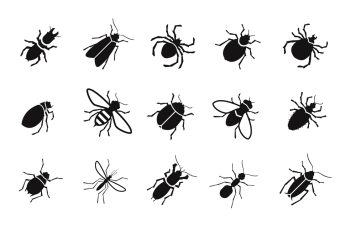As a parent, taking your child to the doctor can be daunting. However, primary care is an important part of keeping your child healthy and safe. In this blog post, we will explore the role of primary care for children, the primary care providers available for kids, what is involved in a primary care appointment, and how parents can prepare for a primary care appointment. We will also look at the benefits of regular checkups and vaccinations. By the end of this post, you should have a better understanding of the importance of primary care for children and how to ensure your child receives the best care possible.
The Role Of Primary Care For Children
Children’s primary care is a critical component of their overall health. When you have a pediatrician as your child’s primary care provider, you’re getting comprehensive care that goes beyond the basics. Comprehensive care services include screenings for common diseases, vaccinations, and preventive treatments. You can be sure that your child is receiving the best possible care with a pediatrician as their main caregiver.
To find the best primary care for your child, it’s important to consider all of the key components of primary care. Primary care providers offer a wide range of services that are tailored to meet the needs of individual children. Some of the key components of comprehensive care services include: regular doctor visits, access to specialists when needed, coordinated patient health records, and patient education.
Primary Care Providers For Kids
Primary care for kids is the first point of health service for children. This means that primary care providers are specially trained to assess, diagnose, and treat a range of wellness issues in children. Primary care providers offer specialized care to address a variety of concerns, from managing chronic illnesses to addressing behavioral issues. By providing regular visits, primary care can identify and treat any potential health problems before they become more serious.
One important part of primary care for kids is providing education around healthy habits and dietary changes. Many children start developing unhealthy habits during their early years – eating junk food or skipping breakfast can have long-term consequences on their health. Primary care providers can help children make informed decisions about their diet and provide the resources they need to change their lifestyle for the better.
Finding The Right Doctor For Your Child
When it comes to your child’s health, you want the best possible care. That’s why it’s important to identify the right medical specialist for your child and to create an effective relationship with that doctor. By doing this, you can ensure that your child gets treatment that is tailored specifically to their needs.
One of the most important aspects of primary care is being proactive – not waiting until something goes wrong. By regularly visiting your doctor and getting screened for health issues, you can help catch problems early and avoid more serious complications down the road. Additionally, it’s important to know what resources are available to assist you in finding the best care for your child. Below, we’ll outline some of those resources and suggest ways that you can use them in order to make informed decisions about your children’s health.
Keep a family health record so that everyone involved in your child’s care knows everything about them – from their current medical conditions to any treatments they’ve had in the past. This record will be a valuable tool when seeking second opinions or recommending additional therapies or treatments. It also helps build trust between you and your doctor, which is essential for a healthy relationship.
What Is Involved In A Primary Care Appointment?
Primary care is an important part of a child’s health, and it’s something that should be looked into from an early age. Primary care is a type of health care that focuses on providing general medical advice and care for children and young adults up to the age of 25. This typically involves regular checkups, health screenings, and consultations with specialists as needed.
For children aged 3-12 years old, generally a variety of health checks are required including: height and weight measurements, vision and hearing assessments, blood tests (including immunisations), urine tests, and other routine exams. It’s important to get these checks done regularly so that you can detect any potential issues early on.
It’s also important to address any childhood illnesses as soon as possible in order to prevent them from progressing or becoming more serious. For example, it’s common for children to catch colds easily so proper hand washing techniques are essential. If your child has any concerns about their health or symptoms that they’re not sure how to address themselves, don’t hesitate to consult your primary care provider or pediatrician. They will be able to provide you with the advice and resources you need in order to have a healthy child!
How Parents Can Prepare For A Primary Care Appointment
When it comes to taking care of your child’s health, you need the best possible primary care provider. Luckily, there are many excellent providers out there who understand the needs of children and their families. If you’re looking for a primary care doctor, here are a few things to keep in mind.
First and foremost, make sure that you choose a provider that is compatible with your lifestyle and preferences. There are many great providers who offer convenient evening or weekend hours, or who can be reached by phone or email if needed. It’s important to find a provider who will work well with your schedule and who you can trust to provide quality care for your child.
Another important factor to consider when choosing a primary care doctor is their experience working with children. Make sure that the provider has experience treating pediatric patients in general, as well as specific conditions that may affect your child’s health. For example, if your child suffers from asthma or allergies, be sure to ask about their experience treating those conditions.
The Benefits Of Regular Checkups And Vaccinations
Many parents may not realize the importance of regular checkups for their children. Checkups are not just a routine doctor’s visit – they are an important part of the growth and development of a child. By checking in on their health regularly, parents can help to identify potential health issues before they become serious.
Different types of vaccinations protect children against different types of diseases. For example, childhood vaccines protect against dangerous diseases such as measles, mumps, and rubella (MMR). These diseases can cause serious health problems in children, including seizures, blindness, and even death. By getting vaccinated against these diseases as a child, your child is ensuring that they have immunity protection for the rest of their lives.
Aside from protecting your child’s health, vaccines also have benefits for the rest of the population. For example, measles outbreaks have been linked to increased rates of asthma and other respiratory illnesses in adults. Vaccines help to prevent outbreaks of contagious diseases by providing immunity protection to people who may be vulnerable to infection (such as pregnant women). Routine checkups not only help identify potential health issues early on; they also improve your child’s overall health by getting them vaccinated against potentially harmful diseases.
While there are some potential side effects associated with vaccinations (most notably fever), these side effects are usually mild and short-lived. If you have any questions or concerns about your child’s vaccinations or checkups please do not hesitate to speak with your pediatrician or doctor. You can also find more information about pediatric care and healthy living at KidsHealth website or via our Children’s Primary Care blog page!
How Doctors Keep Kids Healthy And Safe
Preventive care is essential for keeping your children healthy and safe. When you visit your doctor, you’re not just looking for a diagnosis or treatment – you’re also looking for information and guidance on how to keep your kids healthy long-term. In this section, we’ll discuss the importance of preventive care, the key elements of well child visits, tips to help prepare your children for doctor visits, common vaccines and when they should be given, strategies to keep children active and healthy, ways to teach children healthy habits and prevent injury, discuss the benefits of good nutrition and healthy eating, methods to ensure your child is getting enough sleep, signs of illness or potential health problems in children, and more.
By following these tips and advice from pediatricians, you’ll be able to keep your kids safe from illnesses both big (like cancer) and small (like colds). We hope that this blog post has helped demystify primary care for parents everywhere – let’s work together to make kids’ health our number one priority!

